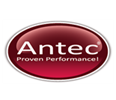
“Some projects that consider coming to the Apache Foundation see rigidity and they see that we are stuck in our ways and they don’t want to be part of that. And that’s fine – it’s certainly not the place for everyone,” Rich Bowen, Executive Vice President of the Apache Software Foundation tells me at the ApacheCon conference in Budapest.
We are sitting in the lounge area at the Corinthia hotel where hundreds of coders, developers and data scientists have gathered for talks about Apache projects. Bowen is referring to the “Apache Way” which essentially means that for projects to come into the Foundation they need to abide by Apache’s principles of “community over code”, “meritocracy” and “openness”.
And so far, you could say this approach has served the non-profit foundation well. Apache played a major part in the growth of the internet in the 1990s, becoming the dominant HTTP server. Today the open-source foundation has only five employees and the rest are volunteers. It has roughly 200 projects going and only survives on a budget of one million dollars a year, which is roughly 5k per project per year. Recent successes include Apache Tomcat and Hadoop. At his keynote, Bertrand Delecratz, Principal Scientist at Adobe, says a whopping “one billion emails are sent annually at Apache and the plan is to keep doing this for the next 50 years”.
But what oddly makes Apache stand out is its steadfast adherence to its core principles rooted in tradition, in a world where, if you are not seen to be adapting and changing, then you may as well be on your way out. Apache must get a lot of criticism about being too rigid with its community guidelines?
Bowen nods his head in agreement but says there is a reason for the way the Foundation works. He says it’s “not arbitrary”, and that decisions are made specifically “in order to make sure projects are sustainable”.
“You look at a site like GitHub that has thousands of projects and then you actually start to look at the statistics and see that 75% of them are one person that’s just developing code. And that’s great, that is awesome. But it’s not something you want to build your business on. It’s not something you want to base a billion dollar company on.”
“So Apache has developed this trust and that comes at a cost of a certain amount of slow-pace,” Bowen explains.
But is there not a danger of losing out to projects just because they don’t agree with the ‘Apache Way’?
“Yeah but you know those projects are still doing amazing things but just doing it somewhere else. I don’t feel like we missed out. We offer a particular service and not every project is the right one to take advantage of that. And that’s ok.”
Bowen is very likeable and down-to-earth and clearly passionate about his work. He grew up in Kenya and when he later moved to the United States he set up his first website for Kenyans that “wanted a community” for discussion amidst turbulent political times.
In the pre-Apache Foundation days, Bowen was at graduate school at the University of Kentucky and his first technical job was at printer company Lexmark, the ‘Lex’ referring to Lexington city in Kentucky, where Bowen lives. At the time Bowen was working on several projects when he got involved in the NCSA web server project because of his desire to “fix things” and pretty soon after that the Apache Foundation was formed. He’s been at the Foundation for about 20 years.
Today, Bowen wears a number of “hats”. He works on the OpenStack project at Red Hat, as well as being active at the Apache Foundation. Red Hat, Bowen tells me, is about to “become a two billion dollar company”, something that he is very proud of: “We did that on free software – very proud to have been involved with that.”
The sense of pride surrounding working on open source projects for the greater public good is something that is very apparent here at the conference. Earlier this week, it was found that Volkswagen used ‘cheating software’ to give false readings of diesel emissions tests. Bowen in his talk earlier at the conference referred to the benefits of using open source to “avoid corporate embarrassments”. Was he alluding to Volkswagen?
Bowen grins a bit sheepishly and admits he was. He laughs and says “it’s very easy and glib to say after the fact: ‘we could have fixed this’.” But more seriously he adds that developing software in the open could have prevented this.
“I mean it is one thing to have security holes that you don’t know about. It’s another to be actively hiding something. The US DMCA law makes it illegal for me to look at their software. That’s very damaging to me as a consumer. I don’t drive a Volkswagen anymore but I used to. I would feel betrayed by a company that would actively cheat the system.”
“But I think that open development, not even necessarily open source but the ability to audit a code could have prevented that. And who knows what else is out there. Who knows whether other companies are doing the same thing and are scrambling right now to make sure that they are not,” Bowen adds.
Still, as Bowen readily admits, the Apache Foundation has its challenges like everyone else. OpenOffice, the initial noteworthy challenger to Microsoft Office (donated by Oracle to Apache) has recently been nowhere to be found. Some developers have jumped ship to LibreOffice.
Is OpenOffice finished?
Bowen immediately looks uncomfortable and says he would “rather not answer that”.
“The board does not pick winners. I would very much like to see the OpenOffice project get its act together but I don’t know if I want to say anything officially about OpenOffice.”
So we shift gears but I suspect that the strange mystery surrounding the OpenOffice project is part of a larger challenge of keeping within the ‘Apache Way’ whilst accommodating different wishes and desires on projects. Apache’s desire to strive for absolute meritocracy is admirable but doesn’t strike me as realistic. After all, politics exists everywhere. Is Apache’s approach too idealistic perhaps?
“It is a very lofty ideal but you are always going to be bringing in people that simply don’t agree with the ideals. That kind of get along in order to be part of it but don’t really believe the same thing. So yes, maintaining the culture is a very difficult challenge.”
For Bowen, the lack of diversity within Apache is also a huge frustration and something he wants to change. He refers to one of Apache’s members, Nóirín Plunkett who passed away very recently. He says Plunkett was a very powerful advocate for women in open-source. When I tell him I’m sorry to hear this, Bowen looks down sadly for a moment and says Apache “miss her a lot”.
“We need her voice in the open-source world, not just in Apache. It’s kind of startling to look at the statistics and realise that we are doing a really good job in comparison to the rest of the open-source world and we are just doing a terrible job. So we need to do so much better.”
Bowen also wants to break the cycle of “white middle class men bringing other white middle class men on to their teams”. He is particularly passionate about bringing in participation in technology from Africa.
“You look at the advances that are happening in Kenya and Tanzania and Nigeria that those of us outside of Africa tend to completely ignore. Man – we need that brain power as there’s brilliant people there.”
For now, Bowen is pretty excited about the Pony Mail project, a web based interface designed to make communication easier for beginners coming into the Apache Foundation. It’s an important development, as mailing lists are Apache’s main form of communication and in Bowen’s own words, “If it’s not in the mailing list it never happened”.
As we come to the end of our conversation, what does Bowen see for the future of open source?
“I think that in 30 years you won’t hear that term anymore, you will just hear software. Because it will be the de facto way that software is developed. And you are going to see companies that don’t embrace open-source being viewed as old fashioned and irrelevant.”
“With Volkswagen I hope that one of the takeaways will be that you’ve got to develop your software out in the open if you want us to trust you. There will still be software that needs to be developed in secret but that will be the outlier. I think the Red Hat model is going to win.”
































